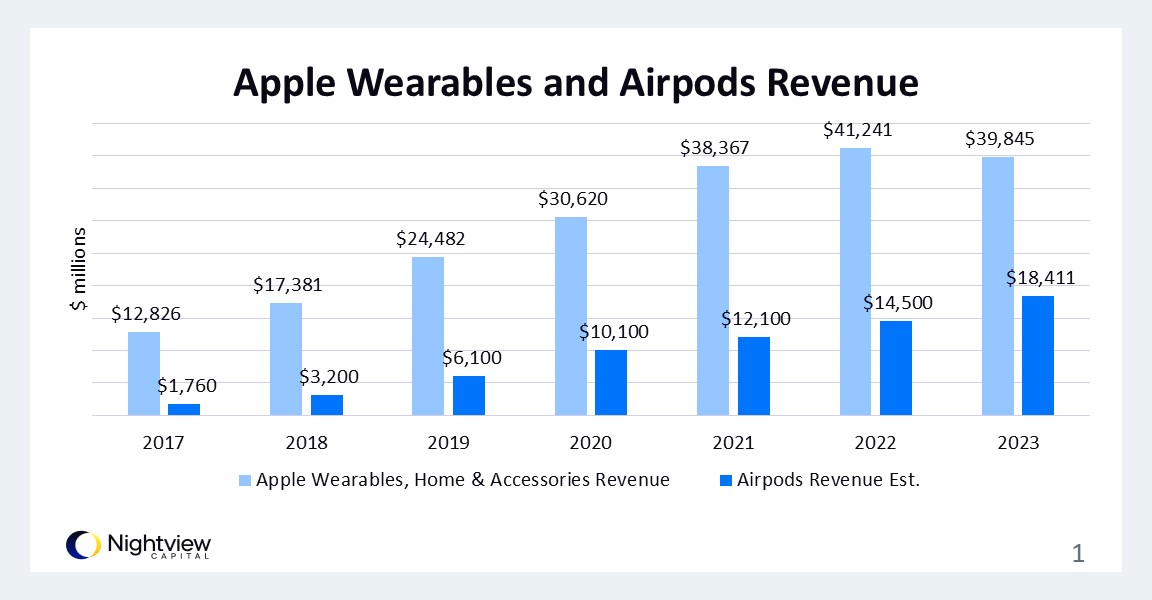The trillion-dollar AI race to create “Digital God”

- Main Story: Investor Gavin Baker considers which companies are leading the race to achieve artificial superintelligence.
- The prime movers at Microsoft, says Baker, believe that losing the race to create “Digital God” is “an existential threat to the company.”
- Also among this week’s stories: The study of myth, the marginal gains of Roger Federer, and the demand for smart wearables.
The investor Gavin Baker offers a smart breakdown this week of what’s at stake (and who is winning) in the race to achieve artificial superintelligence. Baker — the managing partner and CIO of Atreides Management — began covering Nvidia in 2000, Tesla since its IPO in 2010, and has long been a source of insightful commentary on the future of technology and investing.
Gavin’s high-level observation, which I emphatically agree with, is that the leaders of today’s “Mag Seven” companies will continue “to spend until there is irrefutable evidence that scaling laws are slowing.” The reason is simple: they view this race as fundamentally existential to their continued dominance — and long-term survival.
The interview covers plenty of surface area, hitting on the “shootout” happening among today’s Big Tech firms, scaling laws and semiconductors, the future of robotics, rapid advances in Tesla’s AI, and the importance of infrastructure efficiency.
Key quote: “The people who actually control these companies, the founders, there’s either super-voting stock or significant influence. In the case of Microsoft, [they] believe they’re in a race to create a Digital God. And if you create that first Digital God— we could debate whether it’s tens of trillions or hundreds of trillions of value—and we can debate whether or not that’s ridiculous. But that is what they believe. And they believe that if they lose that race, losing the race is an existential threat to the company.”
Why studying myth — not math — can make you wiser
Modern education prioritizes a few key building blocks: math, language, science, history. Rarely, however, do we devote educational resources to the study of myth. Perhaps we should.
Tom Morgan, in his latest essay for The Leading Edge, makes a compelling case that myth is more than just ancient stories; it’s a powerful tool for understanding human experience and navigating the complexities of modern life. Studying myths may even create “information alpha” that leads to better decisions for investors, executives, and entrepreneurs. “Myth may seem like a strange topic for a series on wisdom,” Tom writes. “This is largely a failure of language.” He continues:
Key quote: “Our information ecosystem is now so hazardous that our attention is constantly getting hijacked by different stories. An increasingly small percentage are directly relevant to our daily lives. If you’re not paying attention to the quality of the stories you consume, you are open to exploitation and manipulation. With the rise of AI, this trend is only likely to get worse over time. Until we gain an embodied understanding of what true stories feel like, we will constantly be blowing back and forth without discernment.”
The link between Roger Federer, the telegraph, and investing
This week, I published my latest essay for The Long Game column in Big Think. The piece revolves around what Albert Einstein once observed was the “eighth wonder” of the world: compound interest.
My particular observation in this week’s column centers on the idea that “marginal gains” — tiny tweaks, compounded over time — can yield extraordinary outcomes. We see this across investing, sports, technology — pretty much every field. It’s undoubtedly a winning strategy. And yet, this strategy is often ignored.
For those with enough runway (i.e. time) — and motivation — this scenario creates an interesting arbitrage opportunity to get an advantage in business (and life) over the long-term.
Key quote: “When organizations and management teams struggle, they tend to shun the idea of making small tweaks. When there’s pressure to perform in the short term, the typical corporate playbook involves making sweeping, grandiose changes: massive layoffs; canceling product lines; a new CEO who brings a complete change in strategy. On the surface, these big changes may feel productive. They may even feel good. But very often, these massive changes turn out to be short-sighted — and lead to equally massive blunders.”
A few more links I enjoyed:
Master Your Mind with Arnold Van Den Berg – via William Green
Key quote: “In today’s episode, William Green speaks with Arnold Van Den Berg, who has run a renowned investment firm, Century Management, for almost half a century. Arnold, a Holocaust survivor who never went to college and taught himself to invest, explains how he overcame extreme adversity to become a successful money manager. Drawing on this experience, he shares powerful, practical lessons about how to master your mind and create a truly abundant life.”
Mapping AI’s Rapid Advance: Q&A with Ex-Google CEO Eric Schmidt – via Noema
Key quote: “The key thing that’s going on now is we’re moving very quickly through the capability ladder steps. There are roughly three things going on now that are going to profoundly change the world very quickly. And when I say very quickly, the cycle is roughly a new model every year to 18 months. So, let’s say in three or four years.”
The overlooked virtues of a crowded world – via Jason Crawford / Freethink
Key quote: “Our rapid advancement is driven by another uniquely human faculty that deserves our reverence: we are the only species that can criticize ourselves. Biological evolution ‘learns’ through births and deaths, but with the ability to theorize and criticize, to paraphrase Popper, our ideas can die in our stead. The ability to criticize is the ability to improve.”
From the archives:
The Multidisciplinary Approach to Thinking – via Peter Kaufman (2018)
Key quote: “So why is it important to be a multidisciplinary thinker? The answer comes from the Austrian philosopher Ludwig Wittgenstein who said, ‘To understand is to know what to do.’ Could there be anything that sounds simpler than that? And yet it’s a genius line, ‘to understand is to know what to do.’ How many mistakes do you make when you understand something? You don’t make any mistakes. Where do mistakes come from? They come from blind spots, a lack of understanding. Why do you need to be multidisciplinary in your thinking? Because as the Japanese proverb says, ‘The frog in the well knows nothing of the mighty ocean.’ You may know everything there is to know about your specialty, your silo, your ‘well,’ but how are you going to make any good decisions in life … the complex systems of life, the dynamic system of life … if all you know is one well?”
Nightpixels:
5 Charts Showing the Demand for Smart Wearables





